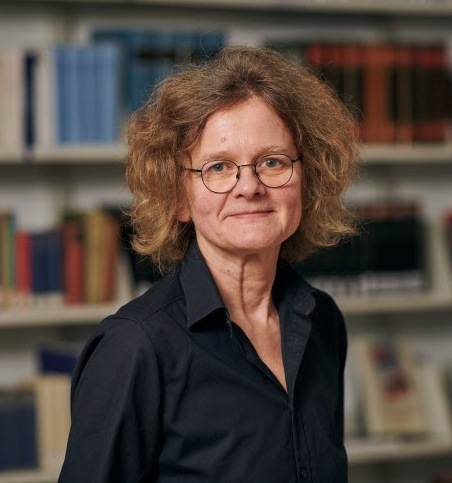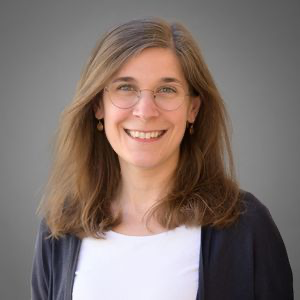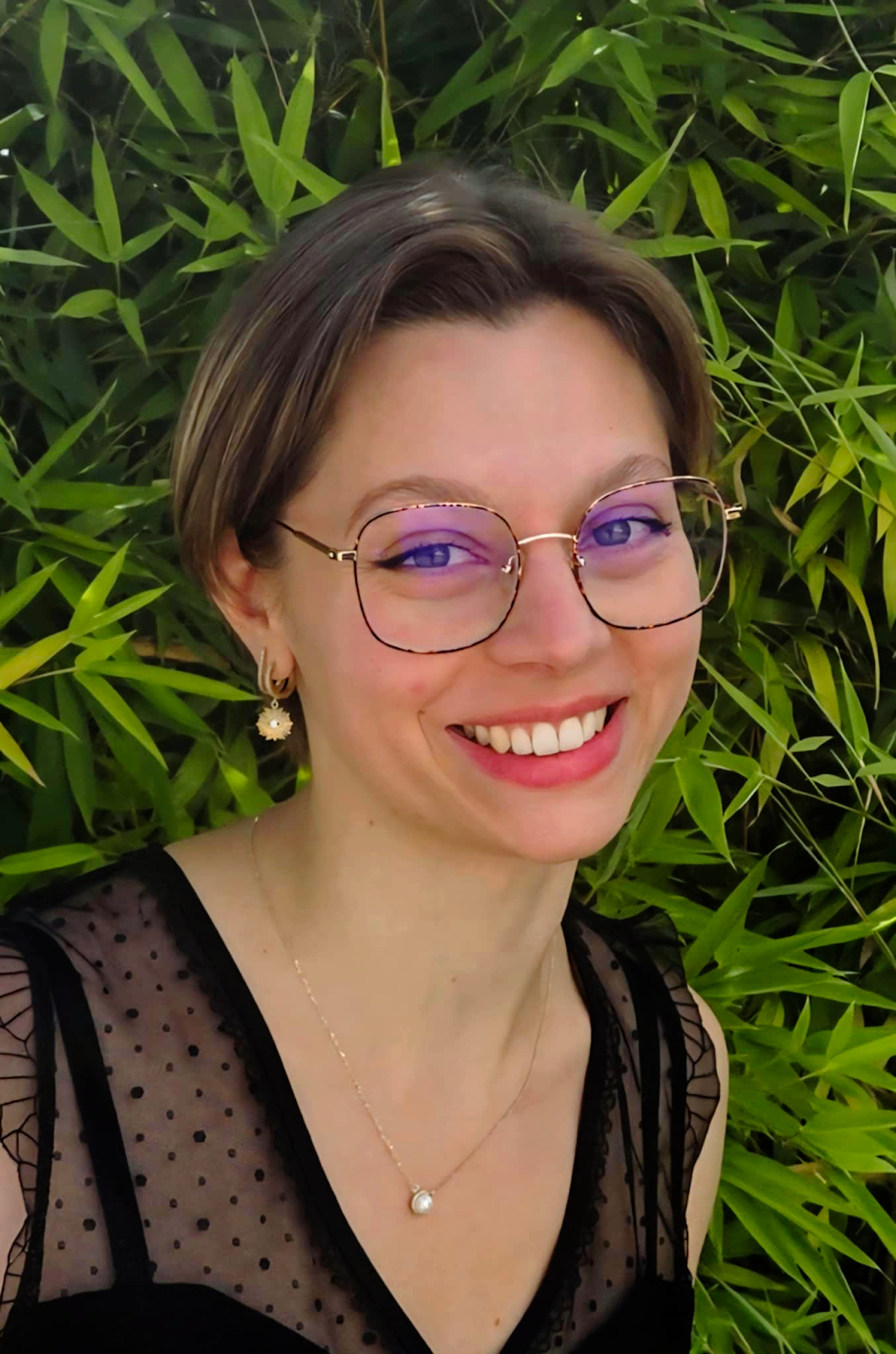Team

Aude Noiray
I am a senior researcher at the Laboratoire de Psychologie & Neurocognition (LPNC) at the University Grenoble Alpes (UGA). I am a member of the Babylab as well as the Développement & Apprentissage and Language teams.
I am passionate about speech, language, and their development. My research lies at the intersection of several disciplines, including experimental, articulatory and acoustic phonetics; psycholinguistics; laboratory phonology; developmental psychology and biology. My most recent projects focus on the (a)typical development of spoken language fluency. I study the evolving connections between speech motor control, perception, phonology, vocabulary and reading. Other projects include vocal development in infants, speech production and perception in patients with pathological speech. My research is empirically grounded. I collect kinematic, acoustic and behavioural data using ultrasound imaging, audiovisual recordings, eye tracking, or developmental assessments.

Susanne Fuchs
Dr. Susanne Fuchs is a senior researcher in the Research Area 1 ‘Laboratory Phonology’. At ZAS she also heads the DFG project On the Flexibility and Stability of gesture-speech coordination: Evidence from production, comprehension, and imitation (FLESH) and the ANR-DFG project An integrative-interactive approach to speech development (VOC2SPEAK). The main focus of Susanne Fuchs’ research are the biopsychosocial foundations of speech and language and their multimodal manifestations in human interactions. In more recent works, Susanne Fuchs is increasingly considering the situational context, such as simultaneous speech and movement, and she tries to apply her results to everyday situations. She follows theories of embodiment without losing sight of other approaches.

Elina Rubertus
Elina Rubertus is a postdoctoral fellow at the ZAS, Berlin. She completed her PhD at the Linguistics department of University of Potsdam at the laboratory for Oral Language Acquisition (LOLA. Her doctoral research addressed the typical development of coarticulatory organization across childhood. To this end, Elina Rubertus employed acoustic as well as articulatory measures in kindergarten and school-aged children as well as in adults. In 2025, she was awarded best student of the year at the University of Potsdam, for her doctoral research. Within VOC2SPEAK, Elina Rubertus will investigate interactions between respiration, body movements, attention, and speech motor control in infancy.
Publications/conferences:
Rubertus, E., Popescu, A., & Noiray, A. (2025). Seriality in word reading: Kinematic insights in beginning and proficient readers. Journal of Experimental Psychology: Learning, Memory, and Cognition, 1-15.
Noiray, A., Ries, J., Tiede, M., Rubertus, E., Laporte, C., & Ménard, L. (2020). Recording and analyzing kinematic data in children and adults with SOLLAR: Sonographic & Optical Linguo-Labial Articulation Recording system. Journal of Laboratory Phonology, 11(1), 14.
Rubertus, E. & Noiray, A. (2020). Vocalic activation width decreases across childhood – evidence from carryover coarticulation. Journal of Laboratory Phonology, 11(1), 7.
Noiray, A., Popescu, A., Killmer, H., Rubertus, E., Krüger, S., & Hintermeier, L. (2019). Spoken language development and the challenge of skill integration. Frontiers in Psychology, 10, 2777.
Noiray, A., Wieling, M., Abakarova, D., Rubertus, E., & Tiede, M. (2019). Back from the future: nonlinear anticipation in adults’ and children’s speech. Journal of Speech, Language, and Hearing Research, 62(8S), 3033-3054.
Rubertus, E., & Noiray, A. (2018). On the development of gestural organization: A cross-sectional study of vowel-to-vowel anticipatory coarticulation. PLOS ONE, 13(9), e0203562.
Noiray, A., Abakarova, D., Rubertus, E., Krüger, S., & Tiede, M. (2018). How do children organize their speech in the first years of life? Insight from ultrasound imaging. Journal of Speech, Language, and Hearing Research, 61(6), 1355-1368.
Doctoral dissertation:
Coarticulatory changes across childhood – implications for speech motor and phonological development Rubertus, E. (2024). Coarticulatory changes across childhood – implications for speech motor and phonological development. University of Potsdam.

Lucie Chasseur
Lucie Chasseur is a doctoral fellow at the Laboratory for Psychology and neurocognition (LPNC) in Grenoble. During her studies, she carried out several projects at the crossroad of language and cognitive development (e.g., lexical development in preschool children, alternative and augmentative communication in young children with disabilities). After working as a research engineer at INRIA, she decided to pursue a PhD in language acquisition, her main field of interest. Within the VOC2SPEAK project, Lucie Chasseur investigate the development of infants’ attention and its relationship with speech motor control development.
Research Experience:
Research Engineer in Natural Language Processing (Inria - Paris): Text analysis, semantic information extraction, and named entity recognition. Intern (GETALP - Grenoble): Evaluating the acceptability of augmentative and alternative communication (AAC) tools for children with speech access difficulties.
Publications/conferences:
Lauriane Aufrant, Lucie Chasseur. UkraiNER: A New Corpus and Annotation Scheme Towards Comprehensive Entity Recognition. LREC-COLING 2024 - The 2024 Joint International Conference on Computational Linguistics, Language Resources and Evaluation, May 2024, Torino, Italy. ⟨hal-04629859⟩
Lucie Chasseur, Marion Dohen, Benjamin Lecouteux, Sébastien Riou, Amélie Rochet-Capellan, et al.. Evaluation of the acceptability and usability of augmentative and alternative communication (AAC) tools: the example of pictogram grid communication systems with voice output. ACM SIGACCESS 2020 - Conference on Computers and Accessibility, Oct 2020.
Lucie Chasseur. ÉvalCom : évaluation de l’acceptabilité et l’utilisabilité des outils de communication alternative et augmentée (CAA) par tableaux de pictogrammes. Sciences de l’Homme et Société. 2020. ⟨dumas-02972128⟩

Anjali Lepain
Anjali Lepain is a research assistant at the LPNC’s BabyLab. She holds a Master’s degree in developmental and educational psychology and is interested in metacognition, early language development, and the effects of educational inequalities on learning mechanisms.
At the BabyLab, Anjali will support the team in planning studies, testing infants, processing behavioral, acoustical and articulatory data. She will most specifically work on studies adressing speech motor control development in infants.